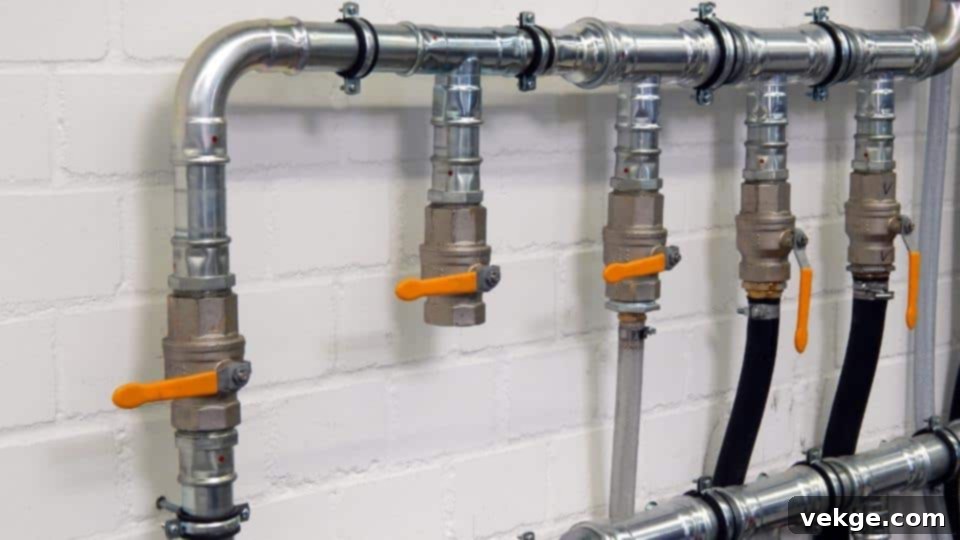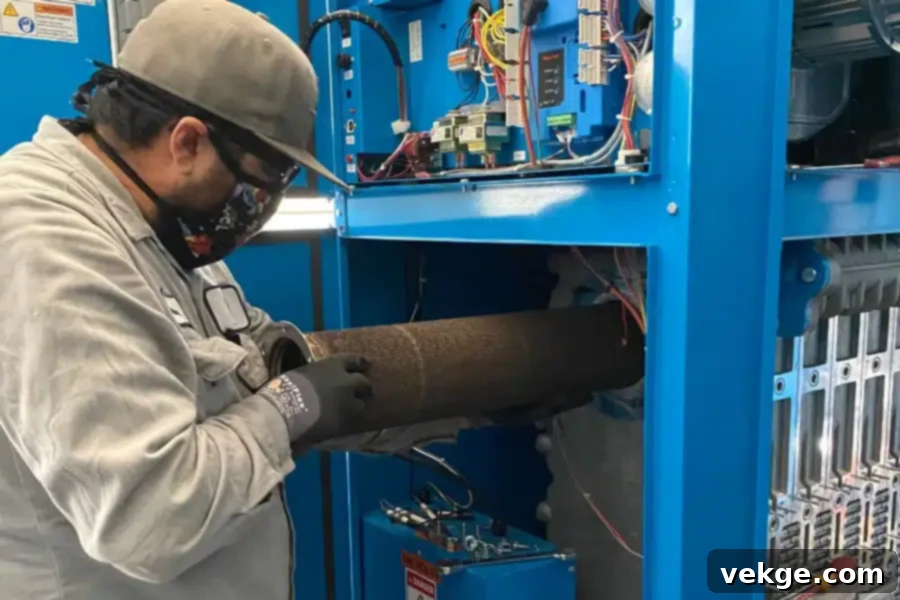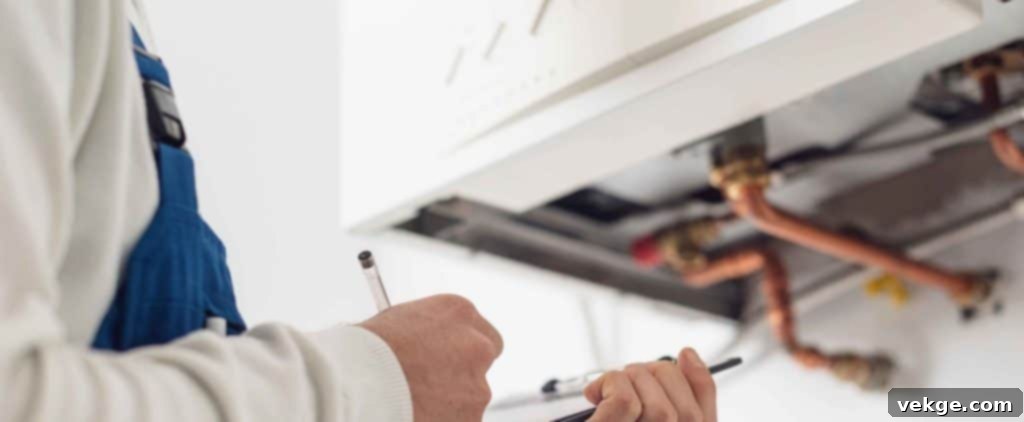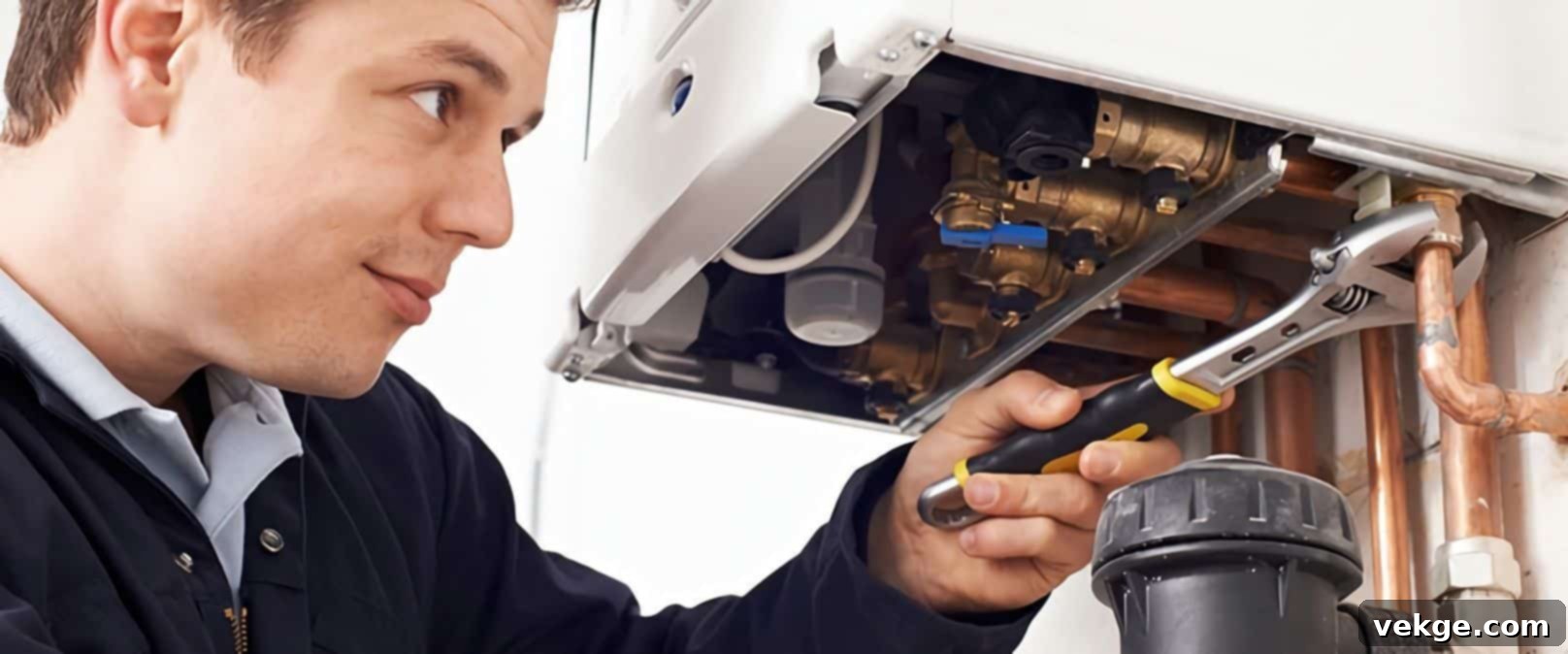The Ultimate Guide to Boiler Maintenance: Ensuring Efficiency, Safety, and Longevity
Boilers are the silent powerhouses of our homes and businesses, diligently providing warmth and hot water whenever needed. Often overlooked, these complex systems are vital for comfort and productivity, especially during colder months. However, like any sophisticated mechanical system, boilers require consistent care and professional attention to ensure they operate at their best. Neglecting boiler maintenance isn’t just a minor oversight; it can lead to a cascade of problems, ranging from diminished performance and skyrocketing energy bills to serious safety hazards. This comprehensive guide delves into the critical importance of regular boiler maintenance services and why they are an absolute necessity for every boiler owner, whether residential or commercial.
Investing in routine boiler maintenance is not an expense but a strategic investment in the efficiency, reliability, safety, and longevity of your heating system. It’s a proactive step that safeguards your property, protects its occupants, and ultimately saves you money and stress in the long run. Let’s explore the multifaceted benefits that underscore the undeniable value of professional boiler servicing.
Enhanced Efficiency: Saving Energy and Money

One of the most immediate and tangible benefits of regular boiler maintenance is the significant improvement in energy efficiency. Over time, boilers accumulate dirt, dust, mineral deposits (limescale), and debris within their components, particularly in the heat exchanger and pipework. These build-ups act as insulators, impeding the efficient transfer of heat and forcing the boiler to work harder to achieve the desired temperature. This increased workload translates directly into higher energy consumption and, consequently, inflated utility bills.
During a routine service, qualified technicians perform thorough cleaning, descaling, and tuning of the boiler. They meticulously remove obstructions, optimize the burner’s combustion process, check pressure levels, and ensure all internal components are operating smoothly. This meticulous attention ensures that your boiler can generate heat with minimal energy waste, maximizing its fuel efficiency. An efficiently running boiler not only keeps your home or business warm but also contributes to a reduced carbon footprint, making it an environmentally responsible choice. Think of it as giving your boiler a regular “tune-up” – just like a car, it performs better and uses less fuel when properly maintained.
Enhanced Reliability: Preventing Unexpected Breakdowns
There are few things more inconvenient than a boiler failure, especially during the peak of winter or at a critical moment for a business. Regular preventative maintenance is your best defense against such frustrating and often costly breakdowns. A professional boiler service allows technicians to conduct a detailed inspection of the entire system, identifying potential issues before they escalate into major problems.
This includes checking for subtle leaks, testing the functionality of critical safety controls, and thoroughly inspecting vital components such as the heat exchanger, burner assembly, and pump. Early detection of minor wear and tear, corrosion, or misalignments means these issues can be addressed promptly and affordably. By catching problems like a worn-out seal or a slightly faulty sensor in their infancy, boiler maintenance effectively averts the need for emergency repairs, which are almost always more expensive and disruptive. Proactive servicing ensures your boiler remains a dependable source of heat and hot water, providing uninterrupted comfort and operational continuity for your property.
Prioritizing Safety: Protecting Lives and Property

Perhaps the most compelling and critical reason for advocating regular boiler maintenance is the paramount issue of safety. A faulty or poorly maintained boiler can pose severe risks to occupants and property, including lethal carbon monoxide leaks, gas leaks leading to fires, and even explosions due to uncontrolled pressure build-up. Carbon monoxide (CO) is particularly insidious as it is an odorless, colorless, and tasteless gas, often referred to as the “silent killer.” Faulty combustion, blocked flues, or cracks in the heat exchanger can lead to CO escaping into living spaces, causing symptoms that range from headaches and nausea to loss of consciousness and death.
During a comprehensive maintenance service, certified technicians conduct rigorous safety checks. They will inspect the boiler for any signs of damage or wear that could compromise its integrity, perform flue gas analysis to ensure safe combustion and proper ventilation, and test all safety devices. This includes checking pressure relief valves, temperature limit controls, and ensuring that any installed carbon monoxide detectors are functioning correctly. By verifying that the system is operating within safe parameters and adhering to strict safety standards, professional maintenance not only protects the health and well-being of everyone in the building but also significantly reduces the risk of property damage, costly insurance claims, and potential legal liabilities.
Ensuring Compliance: Meeting Legal and Regulatory Standards
In many regions and jurisdictions, regular boiler maintenance isn’t merely a recommendation; it’s a legal obligation. Building codes, health and safety regulations, and landlord responsibilities often stipulate that boilers, particularly in rental properties and commercial establishments, must undergo annual inspections and maintenance. These regulations are in place to guarantee that heating systems meet stringent safety and environmental standards, protecting tenants, employees, and the general public.
Failure to comply with these mandatory requirements can result in severe consequences, including hefty fines, penalties, invalidation of insurance policies, and even legal action in the event of an accident. For landlords, a valid Gas Safety Certificate (or equivalent in your region) issued by a qualified professional after an annual service is often a legal necessity. By consistently scheduling regular maintenance services with a certified and accredited technician, boiler owners can ensure full compliance with all pertinent laws and regulations, thereby avoiding legal troubles and upholding their duty of care. This peace of mind is invaluable, knowing that your boiler meets all necessary criteria and is legally sound.
Extending Longevity: Maximizing Your Investment

A boiler represents a significant investment for any property owner. Like any expensive piece of machinery, its lifespan is directly influenced by the level of care and attention it receives. By consistently investing in routine maintenance, boiler owners can substantially extend the operational life of their equipment, thereby maximizing their return on investment and delaying the need for costly premature replacement.
Regular cleaning prevents corrosive build-up, lubrication reduces friction and wear on moving parts, and timely adjustments ensure components work in harmony. Technicians can identify and replace small, inexpensive parts that are showing signs of wear before they fail and cause cascading damage to larger, more expensive components. This proactive approach mitigates issues like corrosion, sludge accumulation, and general wear and tear that can drastically shorten a boiler’s effective life. A well-maintained boiler can often last many years beyond its expected lifespan, offering reliable service and deferring the significant capital outlay associated with purchasing and installing a new heating system.
What Does a Standard Boiler Maintenance Service Entail?
Understanding what goes into a typical boiler service can further highlight its value. While specific procedures may vary slightly depending on the boiler type and manufacturer, a professional maintenance check usually includes:
- Visual Inspection: Checking the boiler and all visible pipework for leaks, corrosion, and proper installation.
- Operating Pressure Check: Ensuring the boiler is operating at optimal pressure levels.
- Flue Gas Analysis: Measuring the composition of the flue gases to confirm efficient and safe combustion.
- Internal Component Cleaning: Cleaning the heat exchanger, burner, igniter, and electrodes to remove dirt and debris.
- Testing Safety Devices: Verifying the functionality of pressure relief valves, thermostats, and other critical safety controls.
- Component Inspection: Checking the condition of all major parts, including the pump, fan, and seals, for wear and tear.
- Ventilation Assessment: Ensuring adequate ventilation and that the flue is clear and unobstructed.
- Minor Adjustments: Making necessary adjustments to optimize performance and efficiency.
- Documentation: Providing a service report detailing all checks performed and any recommendations.
Signs Your Boiler Needs Attention
While annual maintenance is key, it’s also important to be aware of signs that your boiler might need attention between scheduled services. Don’t ignore these warning signals:
- Unusual Noises: Banging, gurgling, whistling, or kettling sounds can indicate limescale buildup, air in the system, or a faulty pump.
- Leaks or Drips: Any water escaping from your boiler or pipework is a serious concern and needs immediate attention.
- Pilot Light Going Out: If your pilot light frequently extinguishes, it could signal a problem with the thermocouple or gas supply.
- Radiators Not Heating Up Properly: Cold spots on radiators or uneven heating can indicate trapped air, sludge, or circulation issues.
- Reduced Hot Water Pressure or Temperature: This might suggest an issue with the heat exchanger or a failing component.
- Increase in Energy Bills: A sudden spike in heating costs without a change in usage could mean your boiler is losing efficiency.
- Strange Smells: A metallic or sulfur-like (rotten eggs) smell could indicate a gas leak, which is extremely dangerous.
Choosing the Right Boiler Maintenance Provider
The effectiveness of your boiler maintenance hinges on the expertise of the technician performing the service. When selecting a provider, always ensure they are:
- Certified and Qualified: They should hold the necessary certifications (e.g., Gas Safe Registered in the UK) to legally and safely work on your boiler.
- Experienced: Look for technicians with a proven track record and extensive experience with your specific boiler make and model.
- Insured: Ensure the company carries adequate public liability insurance for your protection.
- Reputable: Check online reviews, testimonials, and ask for recommendations.
- Transparent Pricing: A clear breakdown of costs for the service should be provided upfront.
Conclusion
In summation, regular, professional boiler maintenance services are not merely a recommendation but an essential practice for ensuring the continuous, efficient, safe, and reliable operation of both residential and commercial heating systems. From optimizing energy consumption and extending the lifespan of your valuable equipment to safeguarding occupants from potential hazards like carbon monoxide poisoning and ensuring full legal compliance, the benefits are extensive and far-reaching. By consistently investing in routine preventative maintenance, boiler owners can significantly reduce their energy bills, avert costly emergency repairs, and gain invaluable peace of mind knowing their heating system is in expert hands. Don’t wait for your boiler to falter or fail; prioritize its health by scheduling a comprehensive maintenance service today. It’s a small investment that delivers significant returns in comfort, safety, and savings for years to come.
